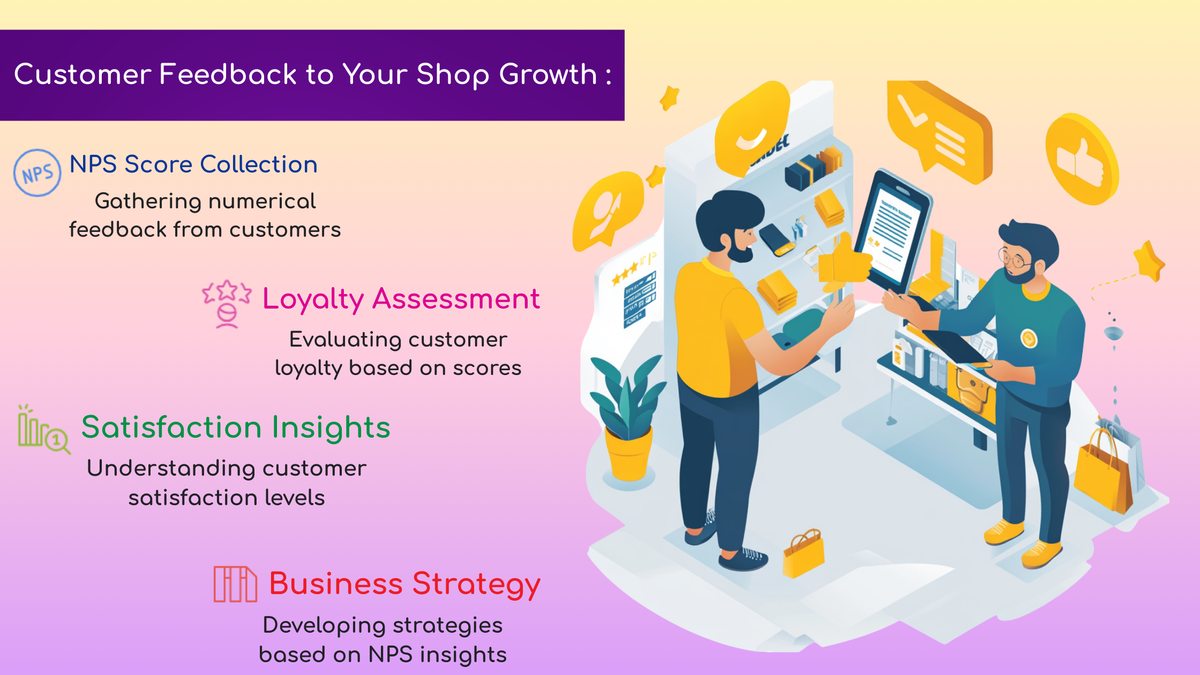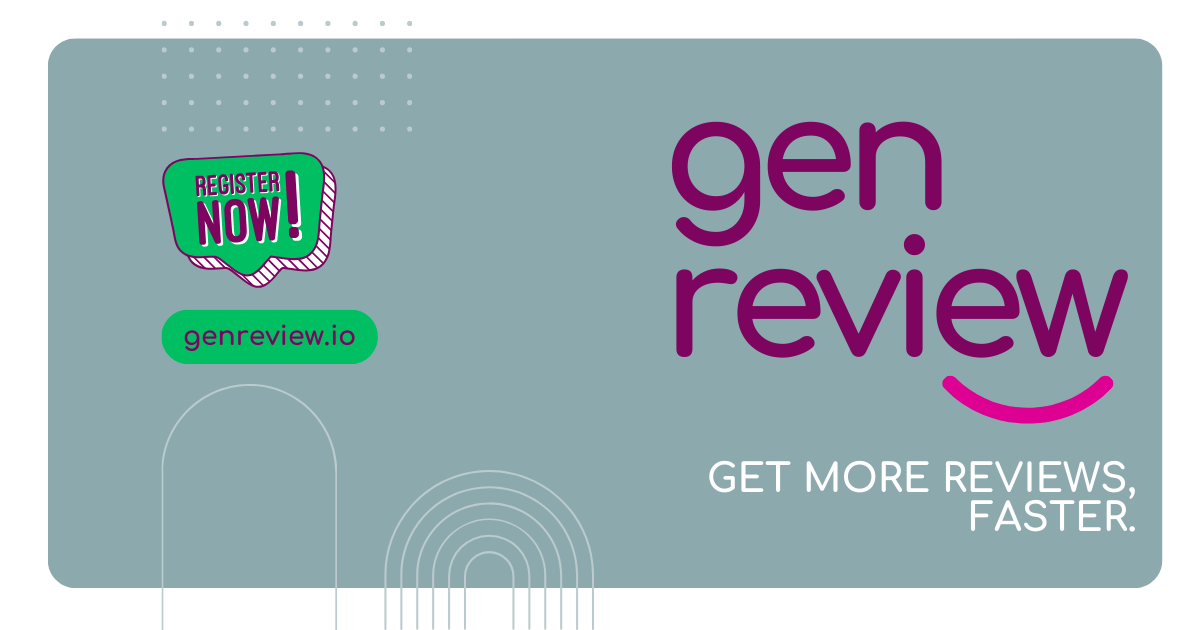Why Net Promoter Score Isn’t Just a Number
Net Promoter Score isn’t just a number- it’s your shop’s reputation, loyalty pulse, and secret weapon for growth. Listen, act, and turn feedback into fuel for success.

Imagine this: Your favorite shop asks, "Hey, how likely are you to recommend us to a friend?" You smile, click "9", and move on.
End of story? Nope. That’s just the beginning.
Behind that simple click lies a story about loyalty, trust, and customer satisfaction that could shape the entire future of your shop. That little number you casually picked? It’s a powerful pulse check- a mini X-ray revealing whether the shop is thriving, surviving, or secretly crumbling.
Net Promoter Score (NPS) isn’t just a number; it’s a living reflection of how your customers feel about you. It tells you whether the people are about to become your biggest cheerleaders, indifferent window shoppers, or even your worst critics.
In today’s hyper-competitive world, where one review can spark a shopping spree or a boycott, understanding your NPS is no longer optional. It’s essential armor for your shop's success, growth, and as well as survival.
And guess what? We’re about to dive deep into why Net Promoter Score isn’t just a boring metric sitting but also it’s the secret sauce behind every shop that wins big.
NPS Isn't Just Customer Feedback-It's Your Shop's Street Cred.
Think about this: If people aren’t excited enough to recommend your shop, why would strangers trust you?
Data says: that 83% of customers trust recommendations from friends and family more than any marketing message. (Source: Nielsen)
Shops with better word-of-mouth naturally spend less on ads and grow faster.
Real Talk you need: Your NPS score isn’t just numbers on a graph- it’s the social proof oxygen your shop needs to breathe and thrive.
Here’s a quick giggle: Word of mouth is the only marketing that works while you’re sleeping. No alarms are required.
Your NPS Isn’t Just Math-It’s the First Whisper About Your Shop
When a customer gives you an NPS score, they’re telling you way more than just a rating.
They're whispering:
- "I loved shopping here!"
- "Meh, it was okay…"
- "I’m messaging all my friends to avoid this shop."
A high NPS shouts trust, love, and loyalty as well. A low NPS is a quiet grumble before the online roast begins.
According to Bain & Company, stores or shops with high NPS scores, grow at more than twice the rate of their competitors.
Measuring Without Acting? That’s Like Asking for Opinions and Then Ignoring Them
Shops often fall into the "collection trap"- they measure NPS regularly but never actually act on it.
Real-world picture:
- You ask customers for feedback.
- You get the score.
- You smile.
- You file it somewhere in a dusty digital folder.
- You move on.
Result? Nothing changes. And guess what your customers notice. If you measure but don’t act, your shop isn’t improving. If you don’t improve, your NPS will eventually drop like a broken elevator.
Here’s a pro Tip: Every NPS response deserves an action plan- whether it a big or small.
Here’s a joke check: Asking for feedback and ignoring it is like asking “How do I look?” and then wearing a chicken costume anyway.
Your NPS is the Story Customers Tell About You (Better Make It a Bestseller)
If you don’t manage your shop’s reputation, someone else will- and they might not be so kind.
Remember: Positive stories travel fast. Negative stories travel faster- with screenshots.
Your NPS helps you spot which story is building right now- and how to rewrite it before it hits the gossip circuit.
Promoters, Passives, and Detractors-Your Hidden VIP Lists
Fun analogy: Think of your customers as party guests:
- Promoters: Bring friends, dance, and post you on Instagram.
- Passives: Eat your food quietly and leave.
- Detractors: Spill the punch and bad-mouth your party afterward.
Your NPS tells you exactly who’s who.
Here’s your cheat sheet:
- Promoters (9-10): Loyal fans. Your secret marketing team.
- Passives (7-8): Fence-sitters. One small mistake and poof, they’re gone.
- Detractors (0-6): Angry keyboard warriors waiting to write a one-star review.
Your job is to:
- Show gratitude towards your promoters.
- Nurture your passives.
- Rescue your detractors (before they torch your reputation online).
Shops Win Big When They Actually Talk to Their NPS Responders
Want to turn your NPS into pure gold?
Talk to the customers who scored you.
- Call a detractor: "Hey, we’re sorry. How can we fix it?"
- Message a promoter: "Thank you! Here’s a little loyalty surprise."
- Stay engaged with passive: "What would’ve made your shopping experience better?"
When you reach out, you show you care. And caring wins loyalty.
Here’s a data snack: According to Salesforce, 62% of customers say they share bad experiences with others, but only 49% share good ones unless they feel truly valued.
NPS Trends Matter More Than Single Scores
It’s trends that tell the real story.
- Is your NPS rising steadily?
- Are promoters increasing month after month?
- Are detractors shrinking?
If your NPS improves over time, your shop is on the right path.
Don’t panic over a few bad days. Zoom out and watch the journey.
Nugget of wisdom: Focusing on one NPS score is like judging your favorite cricket player based on one bad match.
How to Make Your NPS Strategy Bulletproof
Here’s your simple, sweet, bulletproof NPS action plan:
1. Ask Smartly:
- Right after a purchase.
- Right after a service interaction.
- Not randomly, when customers are tired, angry, or rushed.
2. Analyze Quickly:
- Don't just sit on data like a dragon hoarding gold. Analyze it now.
3. Act Swiftly:
- Fix issues fast.
- Celebrate promoters.
- Tend to passives before they drift away.
4. Communicate Openly:
- Tell customers what you learned from their feedback—and what you're doing about it.
5. Repeat Relentlessly:
- Make feedback a monthly heartbeat, not a yearly afterthought.
Learn from mistakes, laugh about them, and move on smarter.
Turning your NPS into the Revenue Machine
When you use NPS properly:
- Promoters shop more and refer friends.
- Passives give you ideas for improvement.
- Detractors help you see your blind spots.
According to Frederick Reichhel, a 5% increase in customer retention can lead to a 25%-95% increase in profits. (Source: Bain & Company)
Hence, Making your customers happy isn't charity. It’s the smartest business move you'll ever make.
Conclusion
NPS is the heartbeat of your shop’s future. If you listen to it, learn from it, and act on it, your shop will thrive. If you ignore it, one day you’ll wonder why customers disappeared like socks in a laundry machine.
- Build your shop based on real voices, not just on assumptions.
- Make your NPS a living, breathing, improving part of your everyday operations.
Because at the end of the day: Shops that understand NPS don’t just grow.
They glow.
Your Customers Are Speaking. Is Your Shop Really Listening?
Your customers are already telling you how they feel and every NPS score is a glimpse into their experience. But the real transformation begins when you truly listen to your customers and act on it.
With GenReview, you don’t just collect feedback, you turn everyday responses into real relationships, quiet shoppers into loyal promoters, and your shop into a brand people genuinely love and trust.


